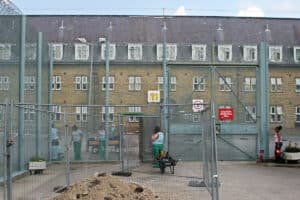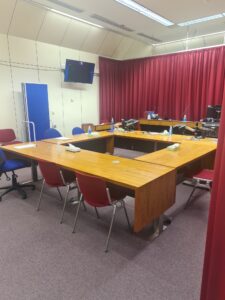a directory of resources for women offenders
women offenders
Women offenders have different needs
The fact that women make up only 5% of the prison population and 15% of those on probation means their needs are often overlooked by a system which is focused on the profile and behaviour of male offenders.
Some of the key inequalities are:
71% of female prisoners suffer from two or more mental disorders (including personality disorder, psychosis, neurosis, alcohol misuse and drug dependence).
• Women are 69 times more likely to die in the week following their release from prison than women in the general population.
• 39% of female prisoners are hazardous drinkers, compared to less than 25% of women in the general population.
• 70% of women entering prison require clinical detoxification.
• 40% of female prisoners have a long-standing physical disability, and over 30% of young women in custody report a long-standing physical complaint.
• Women accounted for over 25% of the incidents of self-harm in prisons in 2013, despite making up less than 5% of the prison population.
These facts are well-known and there is a cross-party consensus that the Corston report which recommended a system change and services to prevent women being criminalised in the first place should be implemented.
However, there has been little progress in the decade since Baroness Corston published her report (2007) and funding cuts have put particular pressure on services for women offenders in recent years.
Nonetheless, there are a number of organisations specifically dedicated to work with women offenders and this resource page lists the main organisations which can help.
Inevitably, many good examples have been left out. If you run or have experience of an organisation which provides support to families, please: Get in touch.

Since this page was launched, agenda, (the Alliance for Women and Girls at Risk) and AVA (Against Violence and Abuse) have launched an excellent resource for women facing multiple disadvantage across England and Wales. “Mapping the Maze” aims to identify what and where services exist for women experiencing homelessness, substance misuse, poor mental health, offending and complex needs and lets you search for helping organisations in your local area.
I recommend Mapping The Maze as a great first step to find help for local organisations working with women offenders.
Resources
Resources are divided into two sections; national organisations working with women offenders and local women’s centres who provide services for women offenders.
National organisations
Birth Companions believes that practical and emotional support is particularly important for pregnant women and mothers seperated from small babies who are in prison, because they are one of the most vulnerable and disadvantaged groups in Britain. Birth Companions visit Peterborough and Bronzefield prisons every week to offer support to pregnant women and new mothers as well as women who have recently separated from their babies.
Choices Islington provides Choice for Change, trained counsellors to support women in Bronzefield & Downview around issues with pregnancy, child or parenting loss, and the I am Project which helps women in the same two prisons with a relational literacy programme.
Coaching Inside and Out (CIAO) began with women in HMP Styal and now also challenges and supports men and young people in prison and the community with life coaching techniques used by business leaders. Clients test their assumptions, realise their strengths, find their own solutions and improve their lives and the lives of others by getting to the root of their problems, beliefs and hopes. The charity also encourages others to provide and commission coaching. [Special 20% discount on Coaching Behind Bars book here.]
Clean Break uses theatre to keep the subject of women in prison on the cultural radar, helping to reveal the damage caused by the failures of the criminal justice system. Through our unique repertory of new plays and our education programmes, we raise difficult questions, inspire debate, and help to effect profound and positive change in the lives of women with experience of the criminal justice system.
The Griffins Society sponsors research to bring about change in how women and girls are dealt with in the criminal justice system.
Hibiscus Initiatives supports foreign national, migrant and BMER women in the criminal justice and immigration system as well as in the community.
Muslim Women in Prison currently operates at HMP/YOI New Hall and Askham Grange prisons assessing the client’s needs prior to release and providing resettlement support. Support includes assistance with housing, benefits access, family mediation, help sourcing volunteering opportunities and if possible employment, signposting/referrals to agencies and support networks. For further information contact Sarah divan (Prisoner Rehab Coordinator) or Ishtiaq Ahmed (Project Advisor) on 01274 521792 email: ishtiaq.ahmed@khidmat.org.uk
Pause works with women who have experienced, or are at risk of, repeat removals of children from their care. It aims to break this cycle and give women the opportunity to develop new skills and responses that can help them create a more positive future.
The Re-Unite project aims to address a long-known failing of the criminal justice system: that women exiting prison can’t get custody of their children because they don’t have a family house, and are unable to access family housing because they don’t have custody of their children. Not only does this mean that ex-offenders are placed at increased risk of homelessness and re-offending, but it also keeps mothers away from their children and prevents them from reuniting as a family.
Women’s Breakout is a membership organisation of 58 organisations that form a network of service providers who work with women in contact with the criminal justice system across England and Wales; providing a collective voice for the women who are working to support this cohort of women – using their collective knowledge and experiences to bring strategic change in respect of women impacted by the Criminal Justice System. [Women’s Breakout is in the process of merging with Clinks.]
Women in Prison is a national charity supporting women affected by the criminal justice system. Delivering a range of support and advice in prisons and the community, it campaigns to radically reduce the women’s prison population from around 3,900 to 2,020 or less by the year 2020. In addition to running three Women Centres, the charity provides advice and advocacy services in women’s prisons, including a magazine written by, and for, women affected by the criminal justice system.
Working Chance is the UK’s only employment charity for women with convictions. They support women leaving the criminal justice system to develop the confidence, skills and self-belief they need to overcome any barriers to their employment, find jobs and build careers. They work with businesses of all sizes across all industries to find opportunities for women that align with their skills and aspirations. Since 2009, Working Chance has supported thousands of women into employment and many more on their journeys towards financial independence.
Women’s Centres
Arun and Chichester – My sister’s house
Barrow – The Well Communities runs a women only abstinent recovery house.
Cambridge Women’s Resource Centre
Gloucester & Swindon (run by the Nelson Trust)
Salford Together Women Project
Yorkshire & Humberside – Together Women
You can find a number of other resources on my site, all of which are free-to-access and/or download. These include:
- An Offender employment resource pack
- A resource pack for working with offenders’ families
- A resource pack for working with veteran offenders
- The Transforming Rehabilitation Resource Pack
- The Innovation Showcase – an overview of the latest innovations in the drugs and crime sector
- A review of the Payment by Results Literature
- An interactive Payment by Results tool to assess the appropriateness of PbR for a specific service
You will also find a copy of the Criminal Justice Alliance’s Criminal Justice Dictionary if you need help with all the latest acronyms.
Women Offender News

The latest data on women in the criminal justice system
The Female Offender Strategy Dashboard shows key trends for women in the CJS.

Women’s experiences of open prison
Sarah Waite’s research on women’s experiences of being in an open prison.

Supporting women at risk of breach
Pilot project shows value of supporting women at risk of breaching their community order.

Serious concerns about health care for women in prison
HMPPS/NHS review highlights eight serious concerns about health and social care in women’s prisons

Great new resource for women offenders
National Women’s Justice Coalition launch great new resource for women in contact with the justice system.

The Greater Manchester Problem Solving Court
The Greater Manchester Problem Solving Courts provides a holistic approach to women on court orders.
